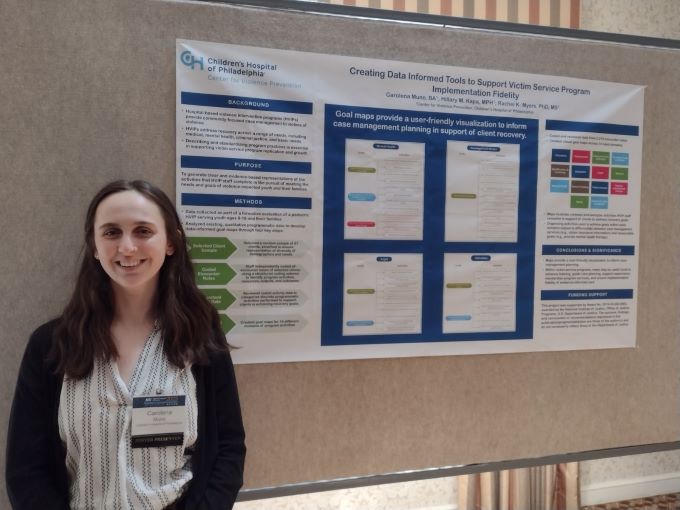Research In Action
Research In Action
Breadcrumb

At lunch on the first day of the National Institute of Justice’s (NIJ) Research Conference, the cap to my iced tea read: “We can’t solve problems by using the same kind of thinking we used when we created them.” This Albert Einstein quote stuck with me not only for its simplicity and proximity to lunch-time caffeine, but also because it eloquently reflects the central focus of this year's conference theme, Evidence to Action. This conference brought together a broad range of researchers, students, practitioners, and legislators to utilize their evidence (and new kinds of thinking) to create action and solve problems related to violence, justice, and crime.
Presenters, who included experts ranging from U.S. Attorney General Merrick Garland to students like me, spoke about the many definitions of justice--from the spatial analysis of crime and its relationship to redlining to altering legislation to respond to the needs of undocumented immigrants. Nearly all of these presentations shared a focus on the need for community involvement in both violence prevention and research processes.
Speakers like Dr. Tracie L. Keesee, president and chief operating officer of the Center for Policing Equity, described how black and brown communities are tired of research being done on them and not with them. Dr. Phillip W. Graham, senior director of the Research Triangle Institute's Center on Center on Social Determinants, Risk Behaviors, and Prevention Science, echoed the need for community voices, saying that he saw no path forward for broad violence prevention that did not integrate and sustain the voices of community members to whom violence prevention efforts were applied.
The presence of community collaboration and guidance resonated with me because of another Center for Violence Prevention partnership with the Christian Street YMCA, a collaboration which is described in a blog post by my colleague and friend Drea Gonzalez.
Stories Are Powerful
My biggest takeaway message from this conference related to this theme of community involvement. That message was simple: stories are powerful. As presenters spoke about the stories and experiences that inspired them, I connected more deeply with them and their research. Like every elementary school child knows, stories captivate us, move us, and transform us. When combined with evidence, these numbers and narratives help create an even more compelling call to action.
This idea of numbers and narratives was one that resonated with the findings that I presented from a NIJ-funded formative evaluation of CHOP’s Violence Intervention Program (VIP) led by Dr. Rachel Myers. Thanks to the support of my mentors, Dr. Myers and Hillary Kapa, MPH, my fellow research staff, and the generosity of the NIJ and the Injury Science REU Program, I was honored to have been selected as both a poster presenter and ull-scholarship recipient for travel and accommodations. My poster presentation, “Creating Data Informed Tools to Support Victim Service Program Implementation Fidelity”, described how our team developed visual goal maps that detailed activities undertaken by VIP case managers to achieve client goals. The numbers underlying the methodology were immense: Our team coded, analyzed, and summarized over 2,200 encounter notes from 67 clients, during countless hours spent grappling with coding software, Excel spreadsheets, and flowchart generators.
However, the narratives behind this development were even more striking. Behind every coded note and visual goal map are the experiences of caregivers, clients, and case managers who worked together to support sustained recovery and healing. These goal maps will help inform the actions of case managers as they support future clients who have been affected by violence. It is my hope that the condensation, standardization, and user-friendly visualization of these narratives will lead to more stories in which victims of violence receive the wrap-around support they need and deserve.

